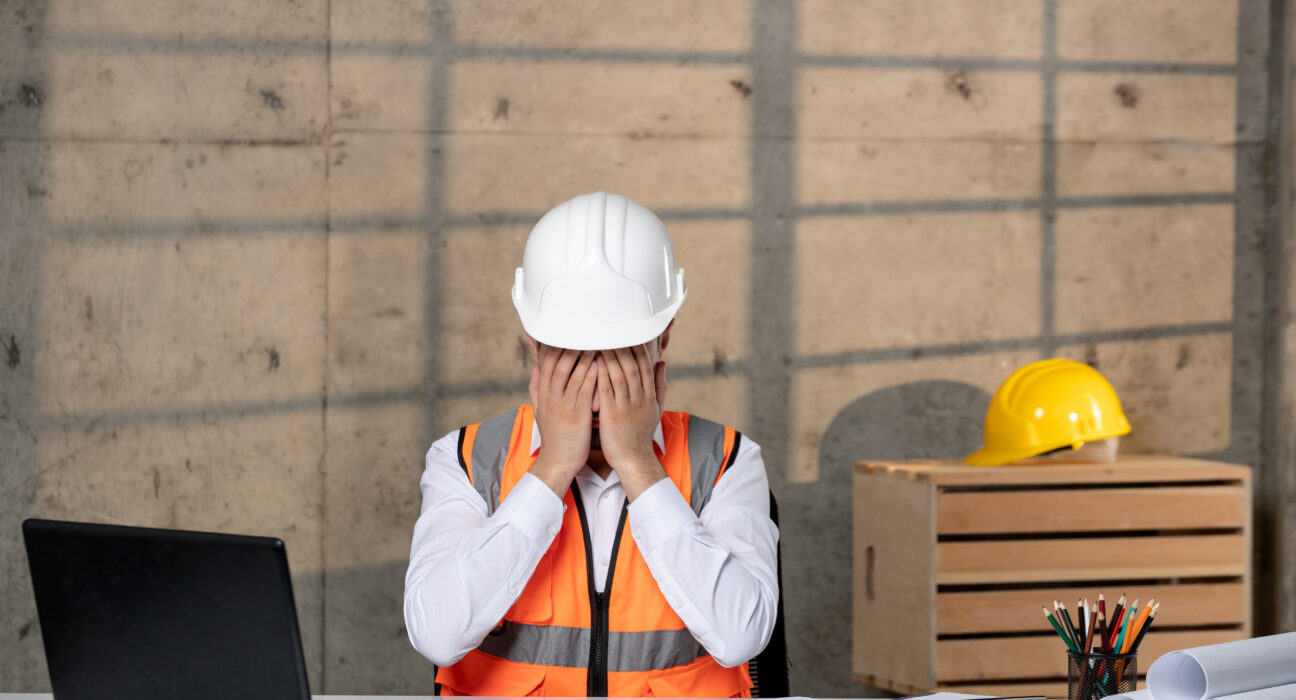Have you ever thought about the mental health challenges faced by construction workers on a daily basis? With physically demanding work, tight deadlines, and safety risks, could mental health be one of the industry’s most overlooked concerns? How do anxiety and depression affect workers, and what can we do to address these pressing issues in the construction sector?
The Growing Importance of Mental Health in the Construction Industry
When you think of construction, what comes to mind? Perhaps hard hats, heavy machinery, and the sight of towering skyscrapers being built. But beyond the physical labor, there is an aspect of construction that is often overlooked: mental health. Anxiety and depression are serious issues affecting workers across the globe, but the construction industry has historically ignored the mental well-being of its workforce. The demanding nature of construction work, long hours, and the pressure to meet deadlines all contribute to stress and mental health challenges.
Mental health matters, especially in an industry as physically demanding and high-stress as construction. The truth is, anxiety and depression can deeply impact construction workers’ safety, productivity, and overall well-being. But how do we address these issues in such a physically focused industry? In this article, we will dive into the mental health challenges faced by construction workers, explore the impact of anxiety and depression on the industry, and offer solutions for creating a healthier, more supportive work environment.
The Mental Health Challenges in the Construction Industry
Construction is one of the most physically demanding industries. While workers often face obvious physical challenges, the mental toll of the job is equally significant but much harder to see. Let’s explore why anxiety and depression are prevalent among construction workers.
1. High-Pressure Work Environment
Construction projects are often deadline-driven, with little room for delays. Whether it’s a road that needs to be completed or a building that must meet an opening date, the pressure to perform can create intense stress. These pressures can contribute to feelings of anxiety, as workers worry about job security, project timelines, and performance expectations.
2. Physical Strain and Pain
Construction work is physically demanding, often involving long hours of labor, heavy lifting, and dangerous tasks. Workers are at risk of physical injuries, which can lead to chronic pain or permanent disabilities. The combination of physical strain and the fear of injury can increase anxiety and lead to depression in workers who feel that they are physically worn down or unable to meet the demands of their jobs.
3. Isolation and Loneliness
Construction workers often work in remote areas or on large job sites, where they may be isolated from their families and friends. Loneliness can exacerbate feelings of anxiety and lead to depression, particularly when workers are far from home for extended periods. The sense of isolation and lack of emotional support can make it difficult for workers to cope with the emotional toll of their jobs.
4. Stigma Around Mental Health
Unfortunately, the construction industry has been slow to address mental health issues. For years, there has been a stigma around discussing anxiety or depression in a profession that values physical toughness and resilience. This stigma often prevents workers from seeking the help they need, leaving mental health issues unaddressed and exacerbating the problem.
5. Job Insecurity and Financial Stress
The construction industry can be unpredictable, with economic downturns, layoffs, or seasonal work causing job insecurity. This financial uncertainty can create significant stress for workers who are worried about supporting their families or maintaining stable employment. This type of stress can lead to anxiety and depression, particularly when workers feel their jobs are at risk.
The Impact of Anxiety and Depression on Construction Workers
The mental health of construction workers doesn’t just affect their personal well-being—it also impacts their work performance, safety, and productivity. Here’s how anxiety and depression affect construction workers:
1. Safety Risks
Construction is a dangerous industry, and workers’ mental health directly affects their ability to stay focused and alert on the job. Anxiety and depression can impair concentration, decision-making, and reaction times, increasing the risk of accidents and injuries. Fatigue, both physical and mental, can also lead to mistakes that compromise safety.
- Reduced focus: Mental health struggles can make it hard to concentrate on tasks, leading to costly or dangerous mistakes.
- Increased accidents: Workers who are stressed or overwhelmed are more likely to miss safety procedures or overlook hazards on the job site.
2. Decreased Productivity
When construction workers are struggling with anxiety or depression, their ability to perform at their best is compromised. They may have difficulty meeting deadlines, keeping up with tasks, or maintaining the level of quality expected in the job. This can cause delays in construction projects, resulting in financial loss and damaged relationships with clients or stakeholders.
3. Long-Term Health Issues
Chronic mental health struggles can lead to long-term physical health issues, such as high blood pressure, heart disease, or gastrointestinal problems. Anxiety and depression can also lead to insomnia, substance abuse, and a general lack of motivation to take care of one’s physical health, further exacerbating the physical toll of construction work.
How to Address Anxiety and Depression in the Construction Industry
The good news is that anxiety and depression in the construction industry can be managed with the right support systems in place. Here are practical solutions for both construction workers and employers to address these mental health challenges:
1. Create a Supportive Work Environment
One of the most effective ways to manage mental health challenges in construction is to foster a supportive work environment. This includes encouraging open discussions about mental health and breaking the stigma that prevents workers from seeking help.
- Promote mental health awareness: Hold training sessions or workshops on mental health to educate workers and employers on the importance of addressing anxiety and depression.
- Offer mental health resources: Provide workers with access to employee assistance programs (EAPs) that offer counseling, therapy, and other mental health support.
2. Encourage Regular Breaks and Time Off
Mental health can suffer when workers are overworked and don’t have time to recharge. Encouraging regular breaks throughout the day and ensuring workers take vacation time is essential for reducing stress and preventing burnout.
- Set reasonable work hours: Avoid long stretches of overtime, which can contribute to fatigue and increased stress. Ensure workers have adequate time off to recover.
- Offer flexible schedules: When possible, allow workers to adjust their schedules to accommodate personal time, which can help alleviate stress.
3. Implement Stress-Relief Programs
Introduce stress-relief programs or initiatives on construction sites to help workers manage anxiety and depression. These programs can include:
- On-site relaxation spaces: Create designated quiet spaces where workers can take breaks, relax, and decompress.
- Stress management workshops: Offer regular workshops on managing stress through techniques like mindfulness, deep breathing, and yoga.
4. Provide Accessible Mental Health Services
Make mental health services readily available and accessible to workers. This may involve offering counseling services or creating partnerships with mental health professionals who specialize in the construction industry.
- Telehealth options: Provide telehealth services to allow workers to access therapy and counseling remotely, particularly for those who work in remote or isolated areas.
- On-site counselors: Have counselors available on-site or at nearby locations to support workers who may be struggling with their mental health.
5. Foster a Culture of Teamwork and Support
Building a team-oriented, supportive culture on the job site can have a significant positive impact on workers’ mental health. Encouraging communication, camaraderie, and mutual support can reduce feelings of isolation and help workers feel supported.
- Buddy systems: Pair workers up with a buddy or mentor who can help them navigate difficult tasks and provide emotional support when needed.
- Regular check-ins: Supervisors should have regular one-on-one meetings with workers to check on their mental health and overall well-being.
A Healthier Workforce for a Stronger Construction Industry
Addressing anxiety and depression in the construction industry is not just a matter of improving worker well-being—it’s essential for the safety, productivity, and long-term success of construction projects. By implementing mental health support systems, promoting open discussions about mental health, and providing workers with the resources they need to manage stress, the construction industry can create a healthier, safer work environment for everyone.
Mental health matters—and addressing anxiety and depression in the construction workforce is a critical step toward building a more supportive, productive, and successful industry. Let’s make sure that every worker has the tools and resources they need to thrive, both mentally and physically.

